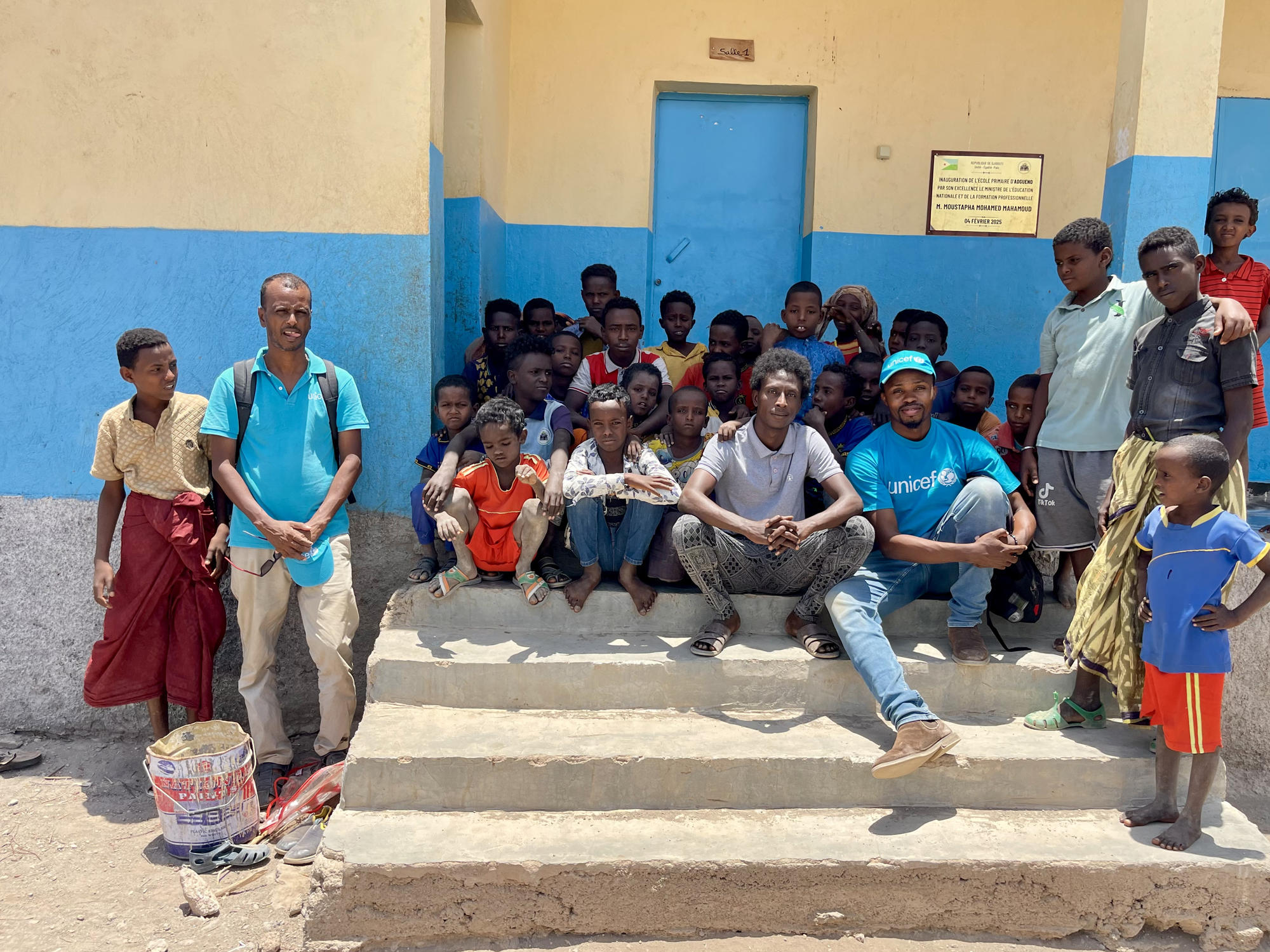Climbing Mountains to Reach Every Child: Delivering Protection in Adgueno

Nestled at the foot of Mount Moussa Ali in northern Djibouti, the village of Adgueno is one of many hard-to-reach communities scattered across the country’s mountainous and desert terrain. Here, more than 70 kilometers from the nearest health sub-prefecture in Alaili Dada, families often live without consistent access to health care—making children especially vulnerable to preventable diseases like polio.
In April 2025, the national polio campaign presented a rare opportunity to change that. Thanks to coordinated planning, strong leadership, and unwavering field commitment, health teams undertook a special outreach mission to protect the children of Adgueno and nearby hamlets—many of whom had never received a single vaccine.
Photo: Children at Adgueno Primary School receive their first polio vaccines during the April 2025 campaign—marking the start of a broader outreach effort across the mountain region. © UNICEF Djibouti
From Schoolyards to Mountain Slopes
The day began at Adgueno Primary School, where the region’s Chief Medical Officer led a team of vaccinators to identify children missed by routine services. There, three zero-dose children aged 4 to 5 received their first dose of nOPV2—an important step in protecting them from paralysis and other risks posed by poliovirus.
But the school visit was only the beginning.
Equipped with 300 vaccine doses and guided by local knowledge, the team set out on foot across the steep slopes and rocky trails that define the surrounding landscape. Their goal was clear: to reach every child under five years old, regardless of how remote their home might be.
“We knew the terrain would be tough, but we also knew what was at stake,” said one field team member. “These children deserve the same protection as any other.”

Photo: Health workers climb rocky hills under the sun to reach remote families in Adgueno with polio vaccines and essential health services. © UNICEF Djibouti
When Commitment Meets Coordination
What unfolded was more than a vaccination round—it was a test of coordination, trust, and physical resilience. Despite heat, elevation, and distance, the team remained focused and flexible, adapting their approach to reach families wherever they were. For caregivers living far beyond the reach of routine services, the arrival of health workers brought both reassurance and hope.
This campaign highlighted the power of frontline leadership and strategic planning—especially in areas where infrastructure is limited and health equity remains a challenge. It also showed how schools, even in the most remote regions, can serve as vital entry points for reaching zero-dose children.

Photo: In hard-to-reach areas like Adgueno, mobile teams use all available transport—sometimes even riding atop wood-carrying trucks—to bring vaccines to every child. © UNICEF Djibouti
Leaving No Child Behind—One Step at a Time
Djibouti may be small in size, but its landscape poses real logistical barriers to healthcare delivery. The story of Adgueno reminds us that the “last mile” is not just symbolic—it is physical, steep, and often invisible on maps. But through collaboration, local leadership, and the resolve of frontline workers, that last mile can be walked—sometimes climbed.
Polio eradication in Djibouti is not only about vaccines. It’s about persistence, trust, and the belief that every child—regardless of where they live—deserves the chance to grow up healthy and protected.

Photo: A camel carries cold-chain vaccine supplies through the dry terrain of Adgueno, helping frontline teams reach nomadic children with life-saving protection. © UNICEF Djibouti
Written by Armand Atangana, SBC Specialist, Djibouti Country Office with the support of Global Polio Outbreak Response Team.

